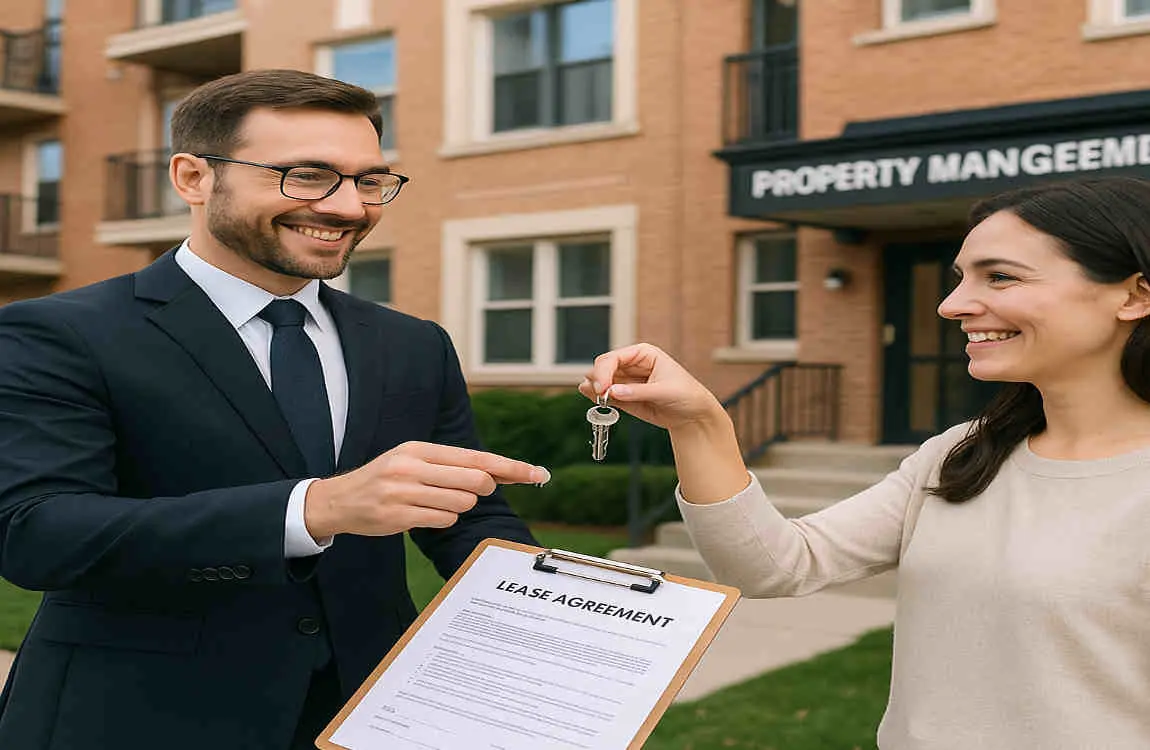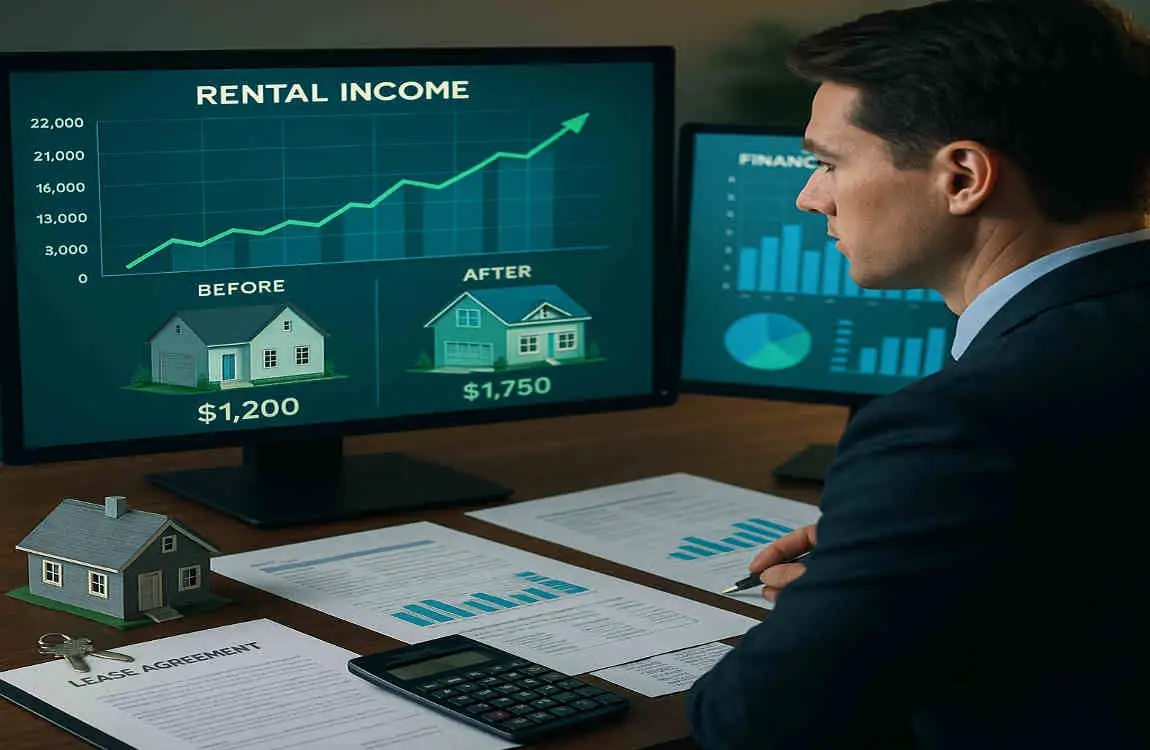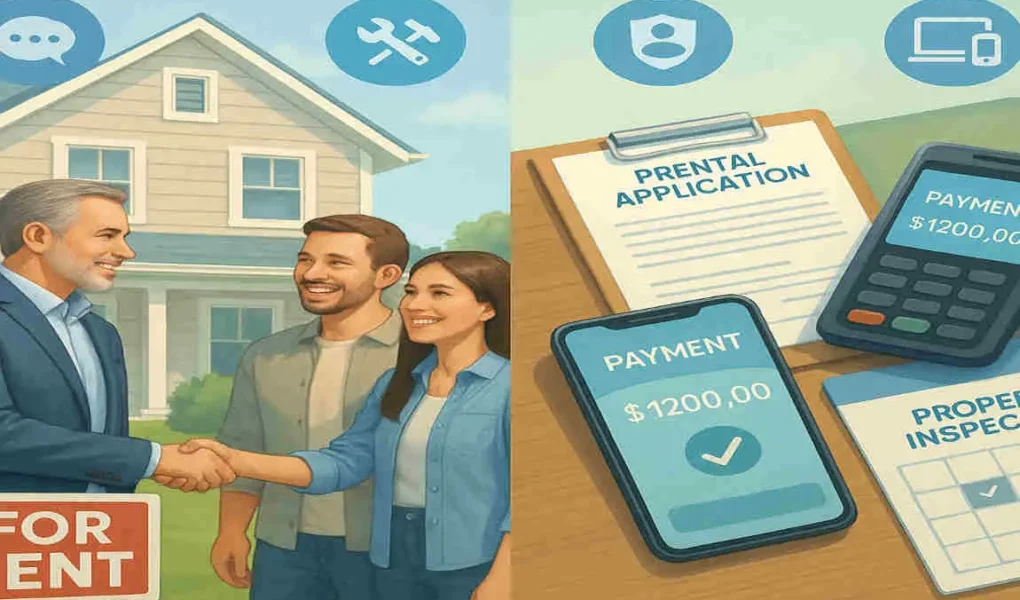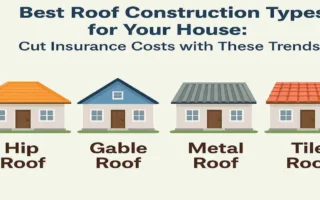Hey there, if you’re diving into the world of renting out homes, you’ve come to the right place. Residential real estate leasing is all about providing a place for people to call home while making sure your investment pays off. It’s a mix of excitement and hard work. If you are a lessor of residential real estate, you know exactly what I’m talking about—the thrill of finding great tenants and the headaches that come with unexpected repairs or tricky legal stuff.
House Improving your rental experience isn’t just a nice-to-have; it’s a game-changer. Think about it: happy tenants stick around longer, which means fewer vacancies and more steady income. Plus, a smooth operation can boost your property’s value over time. When you focus on making things better for everyone involved, you reduce stress and build a reputation as a reliable landlord. This leads to word-of-mouth referrals and easier leasing in the future.
What Does It Mean to Be a Lessor of Residential Real Estate?

Let’s kick things off by getting clear on the basics. If you are a lessor of residential real estate, you’re essentially the owner who rents out a home, apartment, or condo to someone else. You’re not just a landlord; you’re providing a living space in exchange for rent. This could be a single-family house, a duplex, or even a multi-unit building—anything meant for people to live in, not for business use.
At its core, residential leasing involves a legal agreement called a lease. You, as the lessor, promise to let the tenant use your property for a set time, usually in return for monthly payments. But it’s more than paperwork. You handle everything from marketing the place to collecting rent and fixing leaks. It’s like running a small business where your “product” is a safe, comfortable home.
Now, what are your primary roles? First, you screen potential tenants to find reliable ones. This means checking credit, references, and background—nothing too invasive, but enough to protect your investment. Once they’re in, you maintain the property, respond to issues, and ensure everything runs smoothly. You also enforce rules from the lease, like no pets, if that’s your policy.
But challenges pop up all the time. Vacancies can eat into your profits if the place sits empty for too long. Tenants might complain about noisy neighbors or broken appliances, and you have to address those quickly to keep everyone happy. Legal hurdles, such as eviction processes, can be a nightmare if not handled correctly. And don’t forget market shifts—rising interest rates or local economic changes can affect how much rent you can charge.
Are you a lessor of residential real estate facing high turnover? That’s common too. Perhaps tenants leave due to poor communication or neglected maintenance. Or maybe you’re dealing with rising costs for insurance and taxes, squeezing your margins. These issues aren’t just annoyances; they can turn a promising venture into a stressful one.
The good news? Understanding these basics sets the stage for improvement. By recognizing your responsibilities and the pitfalls, you can take proactive steps. For instance, educating yourself on local rental laws early on prevents costly mistakes. Building a network of trusted professionals, such as plumbers or lawyers, makes handling challenges easier.
Key Areas Where Lessors Can Enhance Their Rental Experience (Overview)
Before we dive deeper, let’s zoom out and look at the big picture. Improving your rental experience boils down to a few key areas that directly impact your success. These aren’t just buzzwords; they’re practical steps that can make your life as a lessor smoother and more profitable.
First up is tenant relations. Building trust and open lines of communication keeps renters happy and reduces conflicts. Then there’s property maintenance—keeping things in good shape prevents minor issues from becoming big headaches. Legal compliance is crucial, too; staying on top of rules protects you from lawsuits and fines.
Don’t overlook financial management. Smart pricing and efficient rent collection maximize your income while minimizing losses. Technology can streamline everything from advertising to repairs, saving you time. And finally, boosting your property’s appeal attracts high-quality tenants more quickly.
Building Strong Tenant Relationships
Why Positive Tenant Relationships Matter
Let’s talk about something that can make or break your rental business: relationships with your tenants. Why does this matter so much? Well, happy tenants are more likely to pay on time, take care of your property, and even renew their leases. This reduces vacancies and the associated costs of finding new renters. Plus, good word-of-mouth from satisfied folks can bring in better applicants without much effort on your part.
Imagine a tenant who feels valued—they’re less likely to cause problems or leave abruptly. On the other hand, poor relationships can lead to disputes, legal battles, and negative online reviews. If you are a lessor of residential real estate, think about your own experiences: Have you lost a great tenant because of a simple misunderstanding? Building rapport isn’t just lovely; it’s an innovative business.
Tips for Effective Communication
Communication is key, but how do you do it right? Start with clear, consistent updates. Send a welcome email or note when a new tenant moves in, outlining expectations and how to reach you. Use simple language—no jargon that confuses people.
Make yourself accessible. Respond to messages within 24 hours, even if it’s to say you’re on it. Tools like email or text apps keep things organized. And hey, reader, have you tried scheduling monthly check-ins? A quick call or survey can uncover issues before they escalate.
Handling Tenant Complaints Professionally
Complaints happen—leaky faucets, noisy neighbors, you name it. The trick is handling them like a pro. Listen actively without interrupting; show empathy by saying something like, “I understand that’s frustrating.” Then, outline a plan to fix it and follow through.
Document everything. Keep records of complaints and resolutions to protect yourself legally. If it’s a recurring issue, involve experts early. This approach turns potential conflicts into opportunities to build trust.
Using Technology for Better Communication
Tech can supercharge your efforts here. Apps like Tenant Cloud or Build. let tenants submit requests online, track progress, and even pay rent. It’s convenient for everyone and reduces miscommunications.
For example, set up automated reminders for rent due dates or maintenance schedules. This keeps things running smoothly without constant back-and-forth.
Encouraging Lease Renewals Through Good Rapport
Want tenants to stay? Build that rapport. Offer small incentives like a rent discount for early renewal or upgrades based on their feedback. Celebrate milestones, like sending a note on their move-in anniversary.
Positive experiences lead to loyalty. A tenant who feels heard is more likely to sign on for another year, saving you the hassle of turnovers.
Example Scenarios and Case Studies
Picture this: Sarah, a lessor in Chicago, had a tenant complaining about mold. Instead of brushing it off, she hired a professional inspector right away and fixed the issue. The tenant renewed and even referred a friend.
Or consider Mike, who ignored minor complaints—his turnover rate skyrocketed. Once he started using a communication app and responding promptly, his retention improved by 40%. These real-life stories show how small changes yield significant results. What about you? Have you seen similar successes in your rentals?
Maintaining Your Rental Property Efficiently
The Importance of Prompt Maintenance
Keeping your rental property in tip-top shape is non-negotiable. Prompt maintenance prevents minor problems from turning into expensive disasters. A small leak ignored? It could lead to water damage costing thousands. Plus, well-maintained properties keep tenants happy, which means fewer complaints and more extended stays.
As a lessor, this directly affects your bottom line. Happy tenants equal steady rent, and a pristine property holds its value better over time. Are you a lessor of residential real estate skipping regular check-ups? You might be risking more than you think.
Setting Up Regular Inspections and Preventive Measures
Start with a schedule. Conduct inspections every six months—walk through the property, check appliances, and note any wear. This catches issues early.
Preventative maintenance is your friend. Clean gutters seasonally to avoid roof damage, or service HVAC systems annually. It’s like giving your car an oil change—simple steps that extend life.
Hiring Reliable Contractors
You can’t do it all yourself, so build a team of trustworthy contractors. Ask for recommendations, check reviews, and get quotes from a few. Establish clear contracts to manage costs and expectations.
For service charges, track everything with invoices. This helps during tax time and ensures you’re not overpaying.
How Maintenance Impacts Tenant Satisfaction and Property Value
Good maintenance boosts tenant satisfaction big time. Tenants feel valued when issues get fixed quickly, leading to positive reviews and referrals. And for property value? Regular upkeep can increase resale prices by 5-10%, according to real estate experts.
Think long-term: A well-kept home attracts higher rents and better tenants.
Using Property Management Tools
Tools like AppFolio or Yardi make tracking easy. Schedule repairs, assign tasks to contractors, and get notifications—all in one place. This saves time and reduces errors.
Here’s a quick list of benefits:
- Automated reminders: Never miss an inspection.
- Tenant portals: Let renters report issues directly.
- Cost tracking: Monitor expenses to stay on budget.
By integrating these, you streamline operations and focus on growth.
Navigating Legal and Compliance Issues
Overview of Rental Laws for Lessors
Rental laws vary by location, but they cover basics like tenant rights, rent control, and safety standards. As a lessor, you must know federal rules like the Fair Housing Act, which bans discrimination, and local ordinances on things like lead paint disclosures.
Staying informed protects you and your tenants. Ignorance isn’t bliss here—it can lead to fines or lawsuits.
Importance of Clear Lease Agreements
A solid lease is your best defense. Make it clear and detailed, covering rent, rules, and responsibilities. Use everyday language so tenants understand.
Include clauses for late fees, maintenance duties, and termination. This sets expectations and reduces disputes.
Keeping Up with Eviction Laws and More
Evictions are tricky—follow the process exactly, from notices to court filings. Security deposits? Return them promptly with deductions explained.
Fair housing rules mean treating everyone equally. Update yourself via online resources or seminars.
When to Seek Legal Advice
Don’t go solo on complex issues. Consult a lawyer for evictions or disputes. Professional property managers can handle compliance, too, freeing you up.
Avoiding Common Legal Pitfalls
Common mistakes include improper screening or failing to consider habitability standards. Always document interactions and keep records.
To help, here’s a simple table of key legal areas:
Legal Area Key Tips: Why It Matters
Lease Agreements Include all terms clearly, Prevents misunderstandings
Eviction Processes Follow state timelines strictly Avoid illegal eviction claims
Security Deposits : Itemize deductions in writing, ensure fair returns
Fair Housing Train on non-discrimination protects against lawsuits
By steering clear of these pitfalls, you build a secure operation.
Financial Management and Maximizing Rental Income

Setting Competitive Rental Rates
Pricing your rental right is crucial. Research local markets—what are similar properties charging? Tools like Zillow or Rento meter help. Aim for rates that cover costs but attract tenants.
Too high? You’ll have vacancies. Too low? You miss profits. Adjust annually based on inflation and improvements.
Strategies to Minimize Vacancies
Vacancies hurt—lost rent adds up—market aggressively with great listings. Offer incentives like first-month discounts for quick moves.
Screen tenants thoroughly to avoid evictions, which cause turnovers.
Managing Rent Collection
Use online portals for easy payments—apps like Cozy or PayPal automate it. Set clear policies in the lease.
For late payments, communicate diplomatically: send reminders first, then apply fees if necessary.
Handling Late Payments Diplomatically
Approach arrears with empathy. Offer payment plans if they’re in a bind. But enforce rules to protect your income.
Document everything to support collections if it escalates.
Tax Considerations and Record Keeping
Taxes can be a boon with deductions for repairs and depreciation. Keep detailed records—use software like QuickBooks.
Consult a tax pro to maximize benefits. Remember, good records make audits painless.
Here’s a list of tax tips:
- Deduct mortgage interest and property taxes.
- Track home office expenses if applicable.
- Depreciate big purchases over time.
Smart financial habits turn your rental into a thriving asset.
Leveraging Technology to Streamline Leasing
Technology isn’t just for techies—it’s a lesser’s secret weapon. Digital tools handle everything from finding tenants to collecting rent, making your job easier.
Start with advertising: Platforms like Zillow or Craigslist reach thousands. For screening, use services like TransUnion for quick background checks.
Rent collection? Apps like Avail automate deposits and send reminders. Maintenance requests go digital too—tenants submit via portals, and you assign fixes instantly.
Popular software options include Buildium for comprehensive management and Hemlane for smaller operations. These save hours weekly.
Looking ahead, proptech trends such as AI for predictive maintenance and virtual tours are game changers. Imagine using VR to show properties remotely—fewer no-shows!
If you are a lessor of residential real estate, have you tried these? They enhance efficiency and tenant satisfaction, resulting in improved experiences for all parties involved.
Enhancing the Rental Property’s Market Appeal
Simple Upgrades for Better Appeal
Want to attract top tenants? Focus on curb appeal. Fresh paint, manicured lawns, and updated fixtures make a substantial first impression without breaking the bank.
Inside, modernized kitchens or bathrooms—new countertops or lighting can justify higher rents.
Importance of Cleanliness and Staging
A spotless property sells itself. Deep clean before showings and stage with simple furniture to help prospects envision living there.
This reduces vacancy time and attracts serious renters.
Using Professional Photography and Descriptions
Hire a pro for photos—high-quality images get more clicks online. Write compelling descriptions highlighting features like “spacious backyard perfect for families.”
Balancing Costs vs. Value
Weigh renovations carefully. A $5,000 kitchen update might add $500 to monthly rent—do the math. Focus on high-ROI changes, such as energy-efficient appliances.
By enhancing appeal, you stand out in a competitive market.




